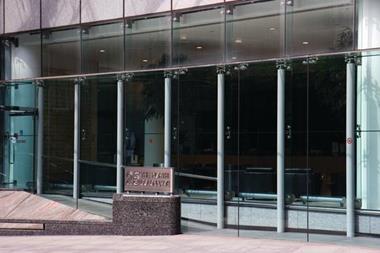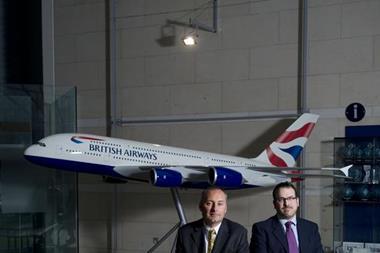Interview - Colin campbell
More than half the AIRMIC members have now attended at least one AIRMIC event in the last six months. This is an incredible figure for a membership organisation, says the current chairman, Colin Campbell, head of risk management for the retail group Arcadia. He believes it is evidence of the success of the partnership arrangements that AIRMIC has developed with insurance industry companies over the last two years.
The money and professional resources provided by the 13 partners have allowed AIRMIC to become more outward looking and offer more to its members, in the form, for example, of various events and free attendance at the annual conference. With the partners' support, AIRMIC has also been able play an active role in discussions with the Financial Services Authority (FSA) and now to develop what Campbell describes as 'an excellent and long overdue dialogue with the British Insurance Brokers' Association (BIBA)'.
Regular meetings with senior BIBA people cover such topics as the production of insurance wordings and documentation under the heading of contract certainty, the European Union Insurance Mediation Directive and the sensitive issue of broker remuneration. According to Campbell, AIRMIC understands that there are different standpoints about commission disclosure within BIBA's membership, but transparency remains the goal, and more work may be needed to achieve it. 'Our strategy has always been based on the principle that the broker acts as the agent for the buyer, and it is clear that wherever the money ends up, we are the ones paying, so we have the right to know,' he says.
For his year as chairman of AIRMIC, Campbell has chosen communicating risk management as his theme. One of the most significant challenges for risk managers today, he says, is conveying to underwriters what difference good risk management makes to the quality of a risk and getting them to take account of it in their pricing. ‘We hope that by providing good quality information in suitable form, we can communicate better with insurers what we do and how we do it so they understand and translate it better into their pricing model,’ he explains.
“It is great being at the cutting edge in this way
Campbell also hopes AIRMIC can help its members communicate to their boards the value that risk management gives to a company, particularly the freedom that confidence in the risk model gives to develop the business. ‘The contribution is difficult to measure,’ he admits, and he adds with a laugh, ‘When something gives true competitive advantage, the business is unable to reveal what it is. But from a risk management perspective, it is great being at the cutting edge in this way.’
Campbell also cites the constant stream of new regulation and the need to imagine remote risks as being among the most important issues facing risk managers.
‘Trying to keep pace with regulations in every territory, even just knowing what is happening, let alone influencing them requires a lot of the risk manager,’ he says. Clearly, Campbell believes, this is an area where AIRMIC can help. Thanks to its relationships, risk managers are getting the opportunity to give their views to key players early in regulatory development.
The risk manager also needs to think of remote but potentially dangerous events that could affect his or her business. ‘You are constantly having to review the risk register and the resources to manage risks. They may be remote, but they are relevant to the environment in which we trade.’



















